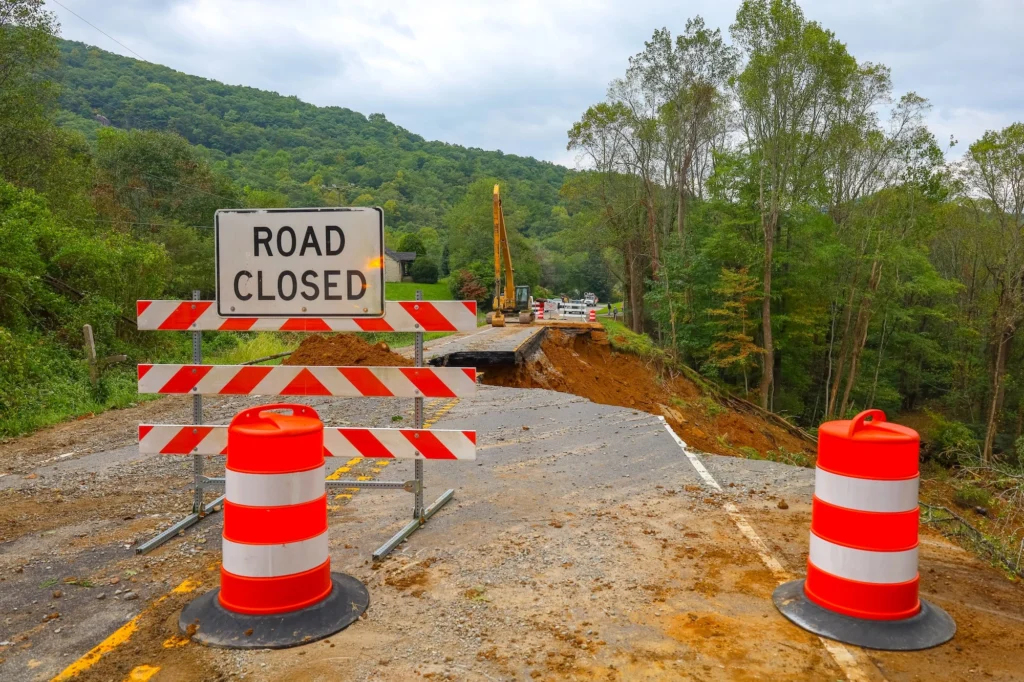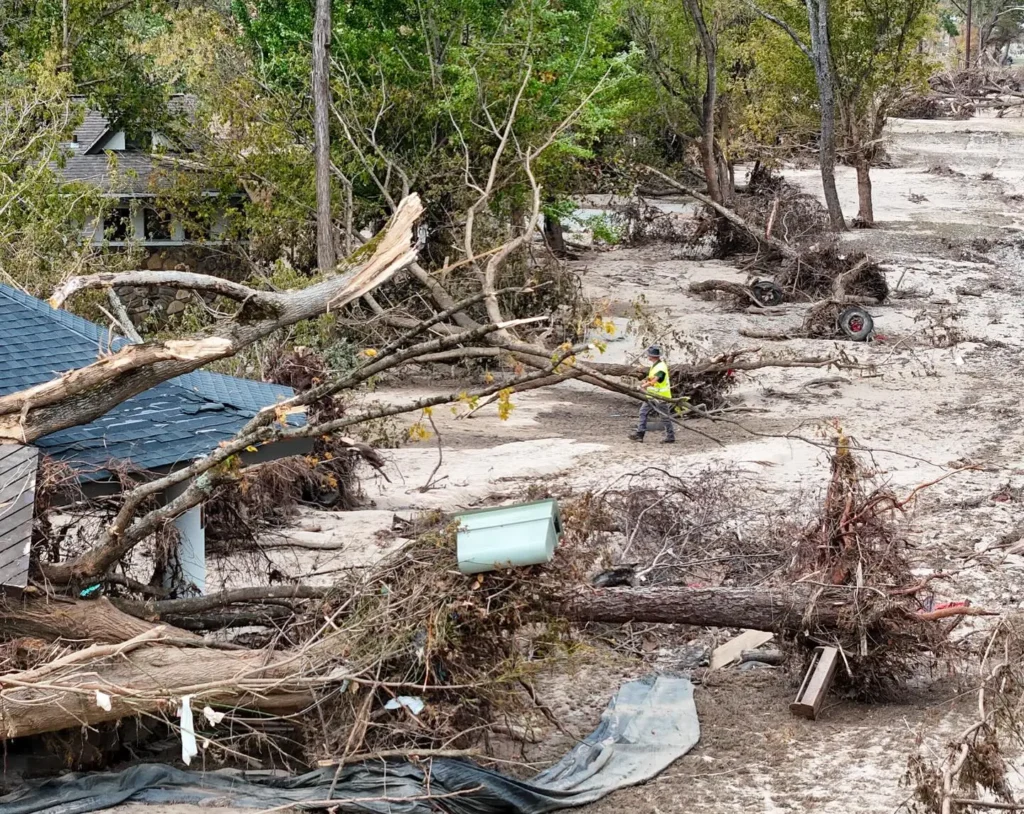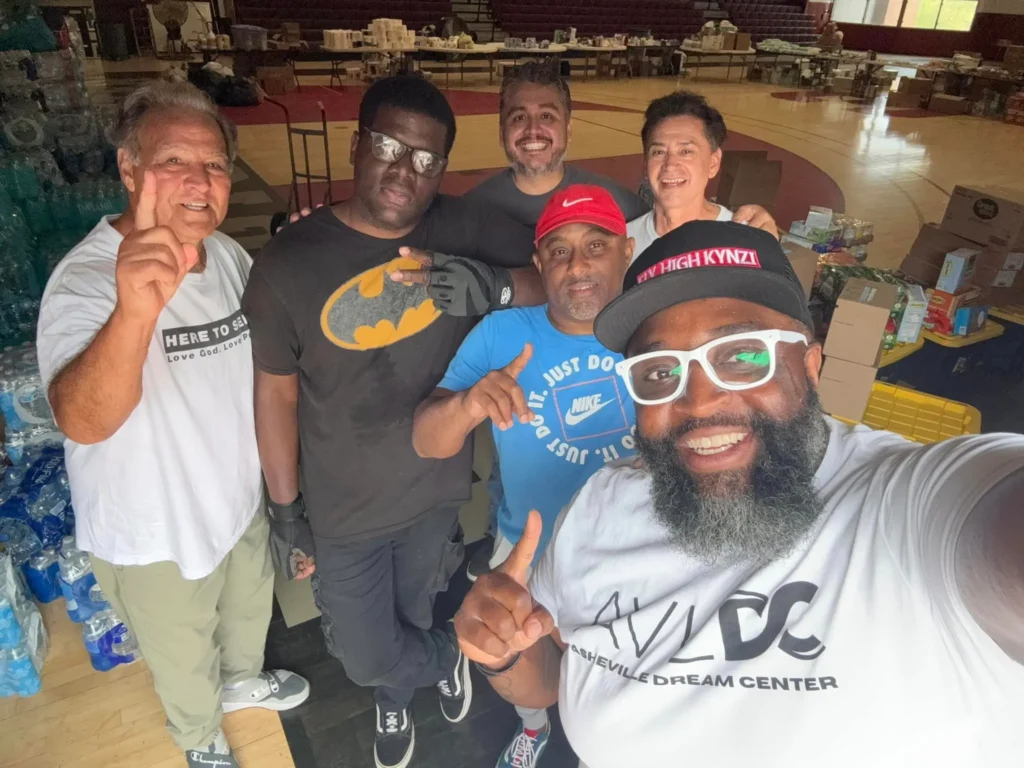When Hurricane Helene slammed into Florida on September 26, it left behind a trail of destruction that’s hard to put into words. The numbers are grim: over 223 people lost their lives, hundreds are still missing, and even now, many residents are cut off—without power, reliable communication, or sometimes even hope. As communities face the massive task of rebuilding, there’s a quiet battle happening beneath the surface. For those dealing with alcohol abuse, substance use disorders, and post-traumatic stress disorder (PTSD), the trauma from Helene isn’t just about physical damage; it’s a deep emotional upheaval that threatens to undo years of healing.
A Disaster Beyond Expectations
Natural disasters expose our vulnerabilities, both in our infrastructure and within ourselves. The physical wreckage from Hurricane Helene is easy to see: collapsed homes, flooded streets, and empty spaces where familiar places once stood. But the emotional and psychological wounds are less visible. Survivors’ mental health is under immense stress, and for those with existing health problems related to substance use, the challenges are even tougher.

Asheville, North Carolina’s Unexpected Struggle
While coastal areas prepared for the hurricane, places like Asheville, North Carolina, didn’t expect to be hit so hard. Nestled in the Blue Ridge Mountains, Asheville usually feels safe from tropical storms. But Helene brought relentless rain, causing flooding and landslides.
Asheville and surrounding areas Residents woke up to find streets turned into rivers and homes underwater. Entire neighborhoods were cut off due to washed-out roads. The French Broad River overflowed, leading to some of the worst flooding in decades. Emergency workers were stretched thin as they tried to rescue people trapped by rising waters.
Take Emily, a lifelong Asheville resident. “We thought the mountains would protect us,” she says. “But the water came so fast. One minute we were watching the rain; the next, we were scrambling to get to safety.” For Emily, who has struggled with substance use before, the disaster brought back old fears and temptations. Worrying about her loved ones added more stress, increasing the risk factors for relapse.
How Trauma Boosts Substance Use
Overwhelming Stress and PTSD in Asheville
The unexpected impact of Hurricane Helene on Asheville has led to a spike in PTSD symptoms among residents. The safety they felt from the mountains is gone, leaving many scared and unsure.
- Numbing Emotions: People might turn to alcohol or drug consumption and other substances to dull intense feelings.
- PTSD Symptoms: Flashbacks, nightmares, and severe anxiety can make people more likely to use substances to cope.
- Post-Disaster Mental Health: The trauma worsens existing mental health issues, making it harder to fight substance use disorders.
- Increased Risk Factors: Stress, loss of loved ones, and disrupted lives raise the chances of increased alcohol and drug consumption and relapse.
Broken Support Systems
Asheville’s close-knit community is a source of strength, but the hurricane disrupted these vital networks.
- Isolation: Floods and landslides cut off many areas, isolating people from friends, family, and support groups.
- Loss of Safe Spaces: Places like community centers, churches, and clinics that hosted support meetings were damaged or destroyed.
- Communication Issues: Power outages and downed lines make reaching out for help difficult.
- Impact on Loved Ones: Being separated from or losing loved ones adds to despair and can trigger symptoms of mental illness.

Economic Hardship and Health Concerns
The financial hit to Asheville is significant.
- Job Loss: Many local businesses are damaged, leading to unemployment.
- Housing Instability: With homes destroyed, people face the stress of displacement.
- Health Problems: Overwhelmed healthcare facilities make it harder to get treatment for physical issues and substance use disorders.
- Public Health Risks: Crowded shelters and poor sanitation raise other public health concerns.
Easy Access to Substances
In the chaos after the hurricane, alcohol and other substances might become more available.
- Unregulated Supplies: Relief supplies might be misused, making substances easier to get.
- Self-Medicating: The urge to use substances to handle stress and PTSD symptoms grows stronger.
- Higher Alcohol Consumption: Stress and availability can lead to more drinking, worsening mental illness and health issues.
- Looting: People had begun to loot non essential items like electronics and clothing, that could be sold to get drugs
Real Stories from Asheville
Mark’s Fight with PTSD and Substance Use
Mark, a 40-year-old veteran in Asheville, had been managing his PTSD and substance use disorder with regular counseling and support groups. The hurricane turned his routine upside down.
“The flood destroyed the clinic where I got treatment,” Mark says. Without my appointments and support group, I felt trapped.” Stress and isolation led Mark to relapse after years of sobriety. “I didn’t know where else to turn,” he admits. Worrying about his loved ones added to his anxiety, highlighting how disasters can increase risk factors.
Lisa’s Road to Recovery
Lisa, a student at the University of North Carolina at Asheville, lost her apartment to flooding. Having struggled with substance use before, she knew the situation threatened her recovery.
“I was scared I’d slip back into old habits,” Lisa shares. “But then I joined a local group helping with relief efforts.” Volunteering gave Lisa a new purpose. “Helping others kept me strong,” she says. Support from her loved ones and new friends reduced some risk factors for relapse.
Challenges After the Storm
Limited Resources and Health Issues
Asheville faces unique problems because of its location and the damage extent.
- Hard-to-Reach Care: Mountainous terrain and damaged roads make it tough for aid and medical services to get through.
- Overloaded Facilities: Local hospitals and clinics are overwhelmed.
- Medication Shortages: Supplies for treating substance use disorders and PTSD are running low.
- Public Health Concerns: Crowded shelters raise worries about disease spread and overall public health.
Disrupted Mental Health Services
There’s a surge in demand for mental health services.
- Fewer Providers: Some healthcare workers are also victims of the disaster.
- Higher Demand: More people are dealing with anxiety, depression, and PTSD.
- Access Barriers: Transportation problems make it hard to reach help.
Stigma and Neglect
Despite the need, addressing substance use disorders and mental illness is still challenging.
- Cultural Stigma: In smaller towns, stigma can stop people from seeking help.
- Resource Focus: Emergency funds often go to physical rebuilding, not psychological recovery.
- Lack of Awareness: Not understanding PTSD and substance use disorders leads to less support.
How Asheville Can Recover
Including Mental Health in Disaster Response
- Community Outreach: Mobile units can provide counseling and resources in hard-to-reach areas.
- Local Partnerships: Working with Asheville-based nonprofits can improve relief efforts.
- Culturally Sensitive Care: Tailoring help to local values makes it more effective.
- Public Health Efforts: Adding mental health care to overall public health plans ensures better recovery.
Rebuilding Support Networks
- Online Connections: Using the internet to reconnect support groups when possible.
- Temporary Meeting Spots: Setting up safe places for group meetings and counseling.
- Peer Support: Training locals to provide basic support until professionals are available.
- Involving Loved Ones: Encouraging family involvement strengthens support and reduces risk factors.

Access to Treatment
- Supply Chains: Making sure essential medications reach affected areas.
- Telehealth Services: Using technology to connect patients with doctors outside the disaster zone.
- Financial Help: Offering aid to those who can’t afford treatment due to financial hardship.
- Public Health Policies: Creating policies that ensure ongoing access to mental health and substance use services.
Education and Training
- First Responder Training: Teaching emergency workers to recognize and help with substance use disorders and PTSD.
- Public Awareness: Holding community events and using media to reduce stigma.
- School Programs: Supporting kids and teens who may be traumatized.
- Spotting Risk Factors: Educating the community to recognize signs that might lead to increased alcohol consumption and substance use.
How You Can Help Asheville
The people of Asheville need support now more than ever.
- Donate: Give to local groups focused on disaster relief and mental health services.
- Volunteer: Help with cleanup, distribute food, or offer professional skills.
- Advocate: Raise awareness about Asheville’s specific challenges to attract more support.
- Support Local Businesses: Buying from Asheville-based companies helps boost the local economy.
- Join Public Health Efforts: Participate in programs aimed at improving the community’s well-being.
Moving Forward Together
Community Strength
- Neighborhood Projects: Working together helps strengthen community bonds.
- Sharing Resources: Pooling what’s available can meet immediate needs more effectively.
- Emotional Support: Talking openly about experiences can help with healing.
- Family Involvement: Leaning on loved ones provides crucial emotional support.
Personal Steps
- Get Help: Encourage people to use available services for substance use disorders and PTSD.
- Self-Care: Promote activities that improve well-being, like meditation, art, or exercise.
- Set Goals: Focus on small, achievable tasks to regain a sense of control.
- Recognize Risk Factors: Learning about signs that might lead to relapse can help prevent it.
Policy and Planning
- Local Government Action: Advocate for policies that prioritize mental health in disaster plans.
- Better Infrastructure: Rebuild with future resilience in mind.
- Community Involvement: Include residents in planning to make solutions more effective.
- Public Health Strategies: Create long-term plans to address mental illness and substance use as key public health issues.
A Call to Help
The stories from Asheville and other affected areas show both human strength and vulnerability. The impact on those with alcohol abuse, substance use disorders, mental illness, and PTSD is deep and needs our attention.
We must push for a disaster response that includes mental health support for everyone affected. By doing so, we not only help immediate recovery but also strengthen our communities for the future.
If you or someone you know in Asheville or other affected areas is struggling with alcohol or substance use after Hurricane Helene, please reach out to local services or national hotlines. Help is available, and you’re not alone.
Where to Find Help in Asheville
- Asheville Buncombe Community Christian Ministry (ABCCM)
- Website: abccm.org
- Services: Offers crisis support like food, shelter, and medical help.
- RHA Health Services
- Website: rhahealthservices.org
- Services: Provides mental health and substance use support.
- Vaya Health
- Website: vayahealth.com
- Services: Manages public funds for mental health and substance use services in Western North Carolina.
- Substance Abuse and Mental Health Services Administration (SAMHSA)
- National Helpline: 1-800-662-HELP (4357)
- American Red Cross
- Website: redcross.org
- Services: Offers disaster relief and recovery support.
This article aims to highlight the challenges faced by people in Asheville and beyond who are dealing with alcohol abuse, substance use disorders, mental illness, PTSD, and related health problems after natural disasters like Hurricane Helene. By understanding and addressing these issues, we can help make recovery efforts more effective and support everyone’s well-being.
Final Thoughts
Disasters like Hurricane Helene test our communities’ strength and expose our weaknesses. In Asheville, the mix of physical damage and emotional trauma requires a caring and comprehensive response.
By sharing stories, offering support, and openly discussing mental health, substance use, PTSD, mental illness, and health problems, we can break down barriers to healing. Our goal isn’t just to get back to normal but to build a stronger, more connected community ready to face future challenges.
As we move forward, let’s remember the people behind the numbers—each with their own story and hopes. By involving loved ones, recognizing risk factors, and focusing on public health, we can make sure no one faces these struggles alone and that Asheville comes out of this disaster stronger than before.






